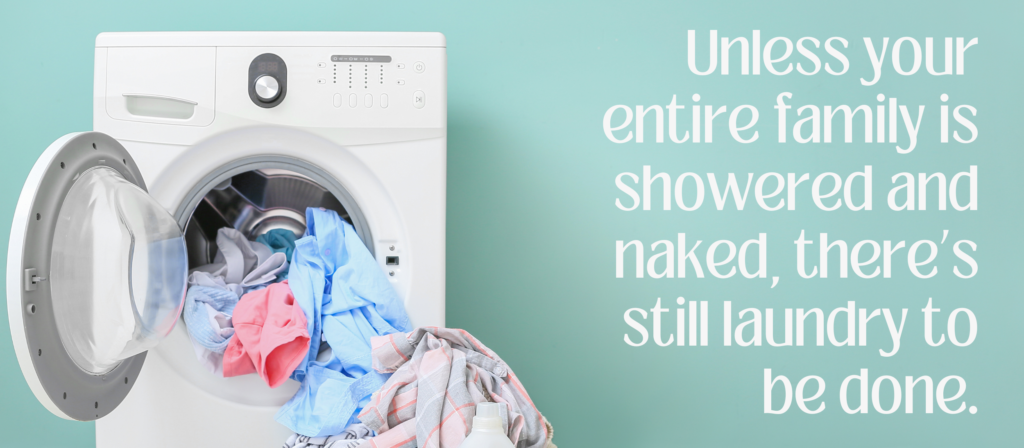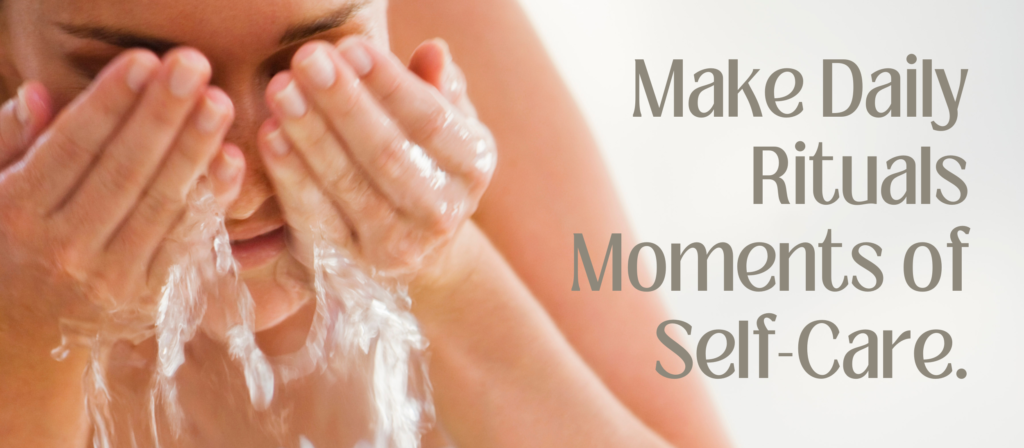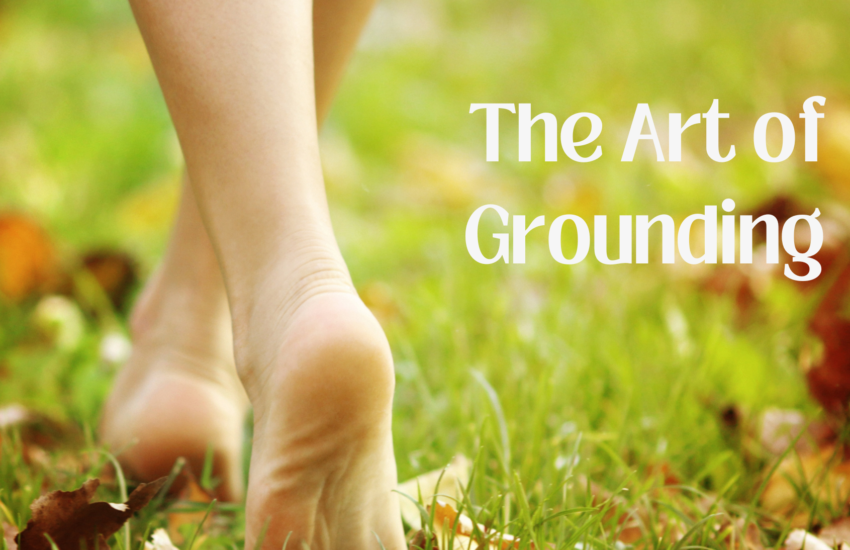Why New Year’s Resolutions Set us up for Failure
Let’s skip the resolutions this year.
I know, to some, this idea may seem downright sacrilegious. It’s tradition to have a New Year’s resolution, otherwise how will we improve ourselves? Aren’t lack of resolutions for lazy people who are happy living mediocre lives?
No. Absolutely not. In fact, the exact opposite is true.
Resolutions set us up for failure and perpetuate negative self-talk and a cycle of broken promises to ourselves, leading to low self-esteem, adrenal fatigue and a scarcity mindset. The yearly cycle of running ourselves ragged during the holiday season and then expecting to be able to pick ourselves right back up and hit January 1st with a bunch of ways to “fix” ourselves is completely unrealistic and it’s time we put an end to it.
When we set a resolution, that’s it. It’s resolute; there’s no wiggle room. But in order to achieve big things, we need to be able to pivot if something isn’t working for us. Humans are, by nature, creative beings. When our creativity is stifled and we’re locked into one way of doing things, we’re more prone to failure than if we allow ourselves room to move and change.
Trying to manage change on top of fatigue is a recipe for disaster. Your body NEEDS to recover. The holiday season isn’t just Christmas. If you’re a mom, you’ve been running from back-to-school shopping, right into Halloween costumes and then on to panic cleaning the house for Thanksgiving and then trying to get all the decorations up and gifts bought in time for Christmas. And it’s not like life stops for the holidays. Dinners still need to be made and your family is still, presumably, wearing clothes, so laundry still needs to get done. We take life, which is hard enough, and then pile on 4 months of stress and chaos on top of it, and then we’re supposed to jump into life changing resolutions just because it’s January 1st?

Trying to institute any meaningful change just because of an arbitrary date is pointless.
Change happens when you’re ready for it and most of us aren’t ready for it right after the holidays.
Here’s my proposal:
Let’s make January the month of self-love.
Hear me out. I know. It’s radical to actually take time out of our busy lives to care for ourselves. But what if we take time to recover from the past four months? What if we take time to relax and breathe, maybe spend some of those Christmas gift cards on ourselves or get our hair or nails done? What if we take time for a walk, or a bath, or even a nap. What if we take the time to love ourselves this month and nurture ourselves back to full capacity before we take on any changes?
Don’t worry over-achievers, January won’t be wasted not moving towards your ultimate goals. In fact, you’ll be more prepared to achieve those goals if you’re coming from a place of rest and refocus rather than fatigue and frustration.
There’s science behind it. When we’re in fight or flight, when we’re tired and stressed out, our body is pumping out a ton of cortisol. Cortisol is the stress hormone and it works in tandem with adrenaline. When you’re tired and you get that second wind? Yeah. That’s adrenaline. Adrenaline is meant for muscles, not the brain. It’s what our bodies pump out when we’re in a stressful situation and we have to get something done. It’s basically for lifting a car off your baby or fighting a sabertoothed tiger. It’s not for Christmas shopping and decorating, but that’s what we end up doing with it in the modern age. When adrenaline and cortisol are activated, it gives us energy to push through and get something done physically, but what it also does is it shuts off the brain. The brain isn’t needed when it comes to survival. Survival is about fighting or fleeing. Survival isn’t about sitting down and figuring out the best plan of attack for our lives. It’s not reflective. So, if we’re in a constant state of stress and then we try to make plans for our future, those plans are not well thought out and they’re reactionary. They don’t have the direction, focus, or commitment we really need to institute lasting change.
So if we spend January taking care of ourselves, if we lower our stress levels and activate our parasympathetic nervous system, if we show our bodies that we don’t need to fight for survival, we activate our brain and get to see what’s really important to us and focus on that instead.
If we spend a month in self-care and reflection, we’re then prepared to start focusing on goals in February. This way we enter from a position of rest and strength rather than fatigue and desperation.
There are ways we can actively lower our stress hormone levels. It doesn’t have to be a passive activity of simply sleeping more, although that really helps. Here are some ways to help your body recover and get you in the best frame of mind to evaluate and prioritize:

I know, it sounds dumb. But water is everything when it comes to your mind, body and emotions. Water flushes out toxins – not just the holiday junk food you’ve been eating, but the added stress hormones that have been flooding your system for the past couple months. Water is a great tool because it can start what’s called habit stacking (more on that later). It’s the first step in taking a conscious move towards a different way of life. And most importantly, it’s doable. We can all manage to drink more water.
By doing something simple like setting a goal for the next week to drink more water, you’re setting yourself up for a feeling of success and success breeds success. Research shows people are more likely to be successful after experiencing success. It’s why the rich just seem to get richer. Our brain leverages success to show us we can do things we haven’t done before. Our subconscious doesn’t know it’s a small win, it just knows it’s a win. Little wins build our self-esteem and give us the confidence to take bigger risks and reach for bigger things. So start small. Prove something to yourself.

The second step is taking a moment of self-care every day.
I’m a huge proponent of making skincare self-care. If you take something that would otherwise be looked at as a chore and change it into a moment of self-care, you change the way you view your daily activities and you change the way you view yourself. Simply taking a moment while washing your face at night while you go through your nightly skincare ritual can be huge for our self-esteem. Recognizing you are taking a moment out of your busy day for yourself, taking a deep breath, massaging the neglected areas of your face and stimulating circulation to your face will do wonders for your complexion. Make your skincare routine a ritual. Light a candle if you want. Or just turn the bathroom lights down low as you wash your face and think about the things you’ve done right during the day. Don’t think about the things you didn’t get done or that you still need to do, think about the things you did right. Have gratitude for the things you accomplished. Feel that feeling of accomplishment – even if it’s just putting a load of laundry in, you still did something that will impact your life and your family’s lives for the better.
By actively turning something that would otherwise be a monotonous thing into a moment of self-care, gratitude and reflection, you are sending a message to yourself that you’re worth taking care of. Little successes lead to big successes and this is just the first step. Little acts of self-care will lead to bigger acts of self-care. Plus, taking a moment of gratitude for what you’ve accomplished each day is huge in changing our lives. I’ll go into gratitude and what it can do for us and the science behind it in my next post, along with more steps to take in order to reach your goals this year.
This is the first post in this month’s Self-Care series on how to reset and discover what your priorities really are so you can set goals and actually achieve them. Make sure to sign up for my email newsletter at the very bottom of this page if you want to be a part of the Anti-Resolution Revolution and really start 2024 out right.
SHARE



